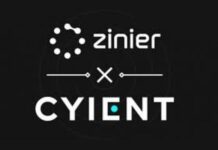Infineon Technologies AG and Teledyne e2v have developed a reference design for the implementation of compute-intensive space systems. The design, built around a Teledyne e2v QLS1046-Space edge computing module, which is configured by the radiation-hardened 64MByte Infineon SONOS based NOR Flash memory, enables high performance space processing applications. The reference design addresses two inherent challenges in space endeavors weight and communication limitations. By reducing the number of components in the computing system and enabling AI computation at the edge, it helps to decrease latency and overcome communication restrictions.
The QLS1046-Space is part of Teledyne e2v’s Qormino product portfolio and is based on a 64 bit Quad Arm Cortex A72 processor featuring an integrated 4 GB DDR4 memory. For this reason, the module requires a non-volatile memory for boot- up. The robust radiation-hardened SONOS-based Infineon CYRS17B512 non- volatile memory is highly optimized for processor boot-up and for FPGA configuration. The memory’s QSPI bus can be connected directly to the QLS1046- Space thanks to its 1.8 V support, thus eliminating the need for a voltage translator. In addition, two SONOS NOR Flash memories can be used for redundancy to meet space requirements.
Both the QLS1046-Space and the CYRS17B512 have high radiation resilience specifications, so they can provide safe operation and long lifetime once deployed in space. The combination of the two devices achieves a 100 krad (Si) total ionizing dose (TID) rating and a 60 MeV.cm2/mg single event latch-up (SEL) immunity.
“By collaborating with valued technology partners like Infineon, we are successfully establishing a product ecosystem around our renowned Qormino edge computing module,” said Thomas Porchez, Application Engineer at Teledyne e2v. “The new reference design makes it much easier for space system designers, allowing them to keep everything on schedule and within budget, while reducing engineering effort.”
“Our CYRS17B512 NOR Flash memory and Teledyne e2v’s QLS1046-Space processor module are well suited to work together in demanding space designs,” said Helmut Puchner, Vice President & Fellow at Infineon’s Memory Solutions Aerospace & Defense. “We expect to see a lot of market interest in the reference design with these two key components, which are necessary to provide a solid space solution for high performance computing applications.”

















